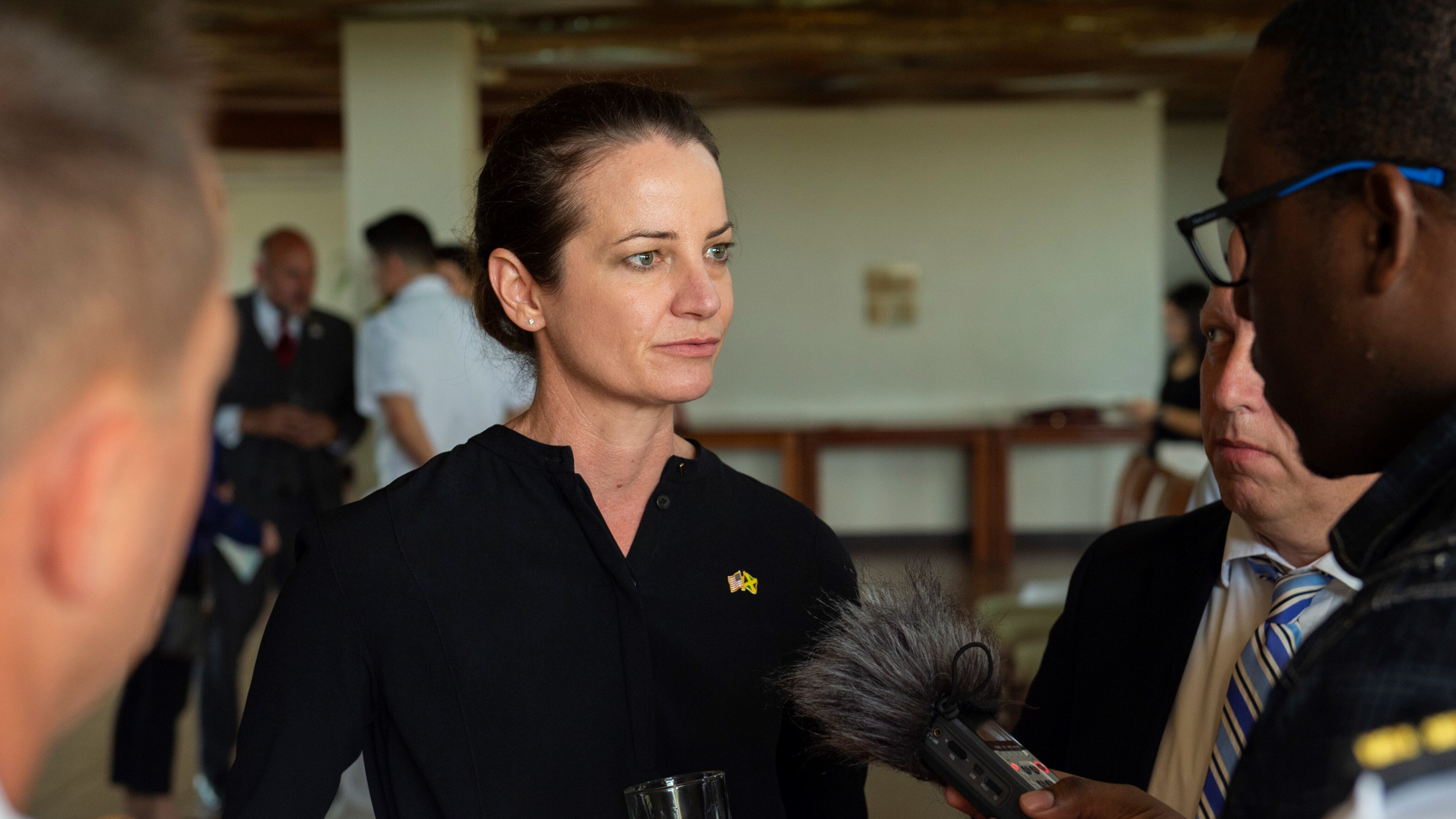WASHINGTON ― President Joe Biden is set to nominate the chief executive of the U.S.-Russia Foundation and a former National Security Council official on Russia to be the assistant secretary of defense for international security affairs.
The White House announced Celeste Wallander as the intended nominee on Tuesday. If confirmed, she would have a key role overseeing U.S. military security cooperation and foreign military sales at a time when Biden has placed a new emphasis on bolstering America’s alliances.
Wallander also served as deputy assistant secretary of defense for Russia, Ukraine and Eurasia, and defense consulting firm WestExec Advisors lists her as a senior advisor there. If the Senate approves Wallander, she would advise Undersecretary of Defense for Policy Colin Kahl.
The acting assistant secretary for international security affairs has been Mara Karlin, Biden’s nominee for assistant secretary for strategy, plans and capabilities.
The international security role “is truly one of the most important positions at the Pentagon,” according to Arnold Punaro, a former Senate Armed Services Committee staff director and the chairman of the board of the National Defense Industrial Association. Wallander, he said, is “a widely-acclaimed expert,” and likely to be confirmed.
“From an industry standpoint, this position oversees the security cooperation programs for all those regions which are fundamental to our security, our alliances and partnerships and the technology that industry provides our warfighters,” Punaro said.
RELATED

Jim Townsend, a former defense official on Europe and NATO policy now with the Center for a New American Security said Wallander’s mix of Pentagon and White House experience shows she’d be effective in the job. (Wallander accompanied then-Secretary of State John Kerry to Moscow for meetings with Russian President Vladimir Putin and Foreign Minister Sergei Lavrov over Syria’s civil war.)
“She’s worked with allies, and she’s gone toe-to-toe with adversaries. There’s no one better for the job,” Townsend said.
Though the U.S.-Russia Foundation was conceived in 2006 to strengthen U.S.-Russia ties and promote investments in Russia’s private sector, Russian President Vladimir Putin declared it “undesirable” in 2015 amid a wave of anti-western sentiment. That year, its Moscow headquarters relocated to Washington, D.C.
Wallander’s nomination came the same day five of Biden’s civilian nominees were approved by the Senate Armed Services Committee:
— Caroline Krass for Pentagon general counsel
— Gina Ortiz-Jones for Air Force undersecretary
— Ely Ratner for assistant secretary of defense for Indo-Pacific security
— Shawn Skelly for assistant secretary of defense for readiness
— Meredith Berger for the Navy’s assistant secretary for energy, installations and environment
By Punaro’s accounting, Biden’s pace for civilian Pentagon nominations in his fifth month is in step with the last several administrations, even as the time it takes to select, vet and nominate has steadily risen since the Kennedy administration.
There’s been action so far on 23 out of 61 Pentagon slots for presidential appointments requiring Senate confirmation. Six have been confirmed, ten are pending on the Senate executive calendar, six are awaiting SASC hearings and the White House announced Biden’s intent to nominate Wallander.
As with the five nominees, who SASC hosted last week in a single hearing, the panel, “has gone out of their way to accommodate the Pentagon doing panels of four and five nominees, which is not the historic norm,” Punaro said.
Joe Gould was the senior Pentagon reporter for Defense News, covering the intersection of national security policy, politics and the defense industry. He had previously served as Congress reporter.







